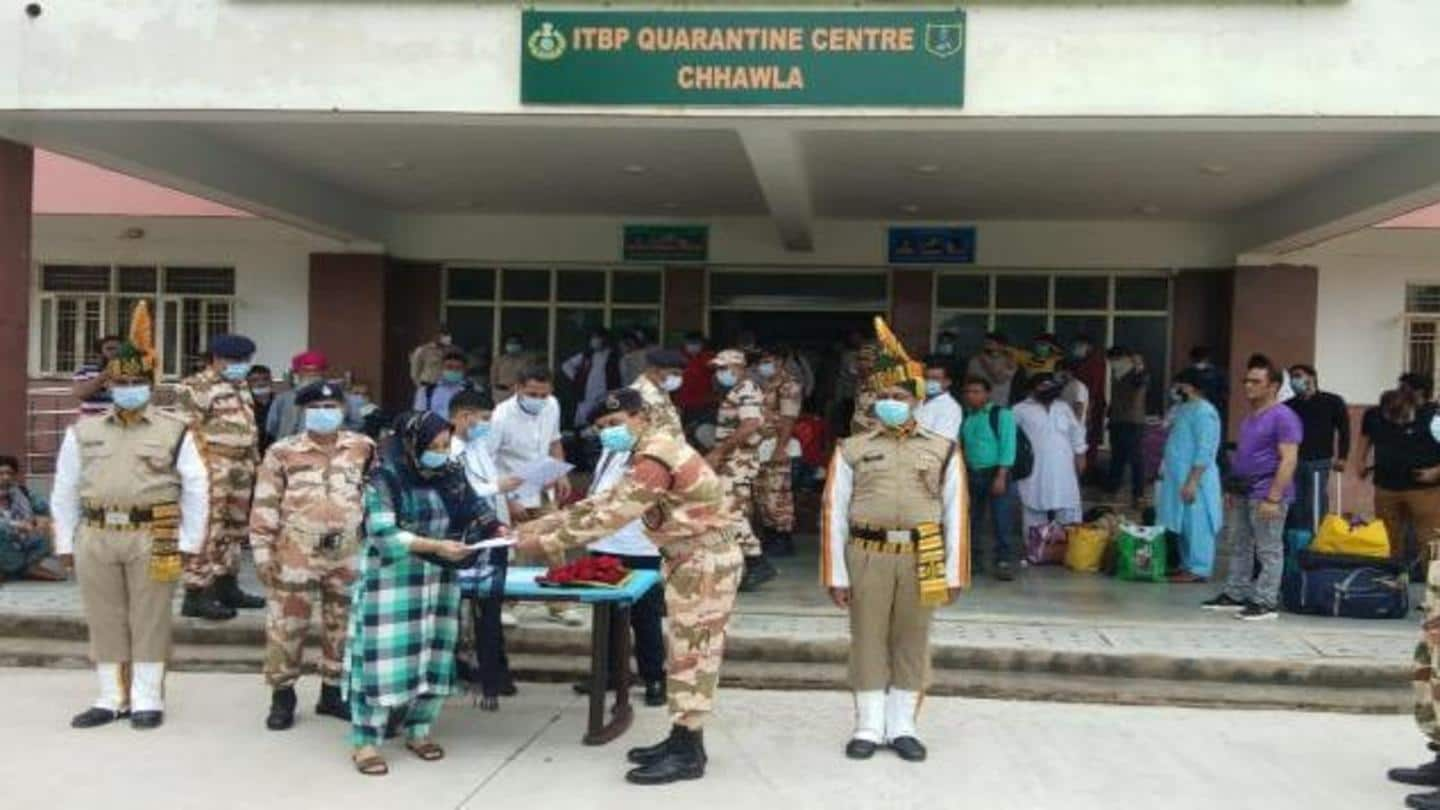
Seventy-eight Afghanistan evacuees released from ITBP quarantine center
What's the story
Seventy-eight people including Afghan nationals, who were evacuated from Afghanistan after Kabul fell to the Taliban last month, were on Tuesday discharged from an ITBP facility in Delhi after they completed a 14-day quarantine rule in place to check the spread of coronavirus infection.
They were handed over medical certificates and a red rose as they left the facility.
Group
The group includes 53 people from Afghanistan and 25 Indians
"The group includes 53 people from Afghanistan (34 men, nine women, and 10 children), and 25 Indians," Indo-Tibetan Border Police (ITBP) spokesperson Vivek Kumar Pandey said.
These people were brought to this COVID-19 quarantine facility in southwest Delhi's Chhawla area on August 24 after they landed in Delhi on board an evacuation flight operated by the Indian Air Force (IAF).
Information
The facility still has 35 people who returned from Afghanistan
The Afghan nationals have been sent to a designated location in south Delhi while the Indians are expected to go to their homes. The facility still has 35 people, who returned from Afghanistan, under quarantine that includes 24 Indians and the rest from Nepal.
Operation
ITBP center was operationalized last year after the COVID-19 outbreak
"This group is also expected to be discharged similarly on Wednesday, at the end of their 14-day quarantine period as mandated under existing COVID-19 medical protocol," a senior officer said.
This ITBP quarantine center was operationalized last year soon after the outbreak of COVID-19 and it has hosted over 1,200 people including foreigners from at least eight countries till now.
Quarantine
First batch of Indians from Wuhan were quarantined in ITBP
The first batch of Indians and some foreigners returning from Wuhan were also quarantined in ITBP last year.
The ITBP is a border guarding force under the Ministry of Home Affairs (MHA) and it is primarily tasked to guard the 3,488 km long Line of Actual Control with China apart from rendering a variety of roles in the internal security domain of the country.